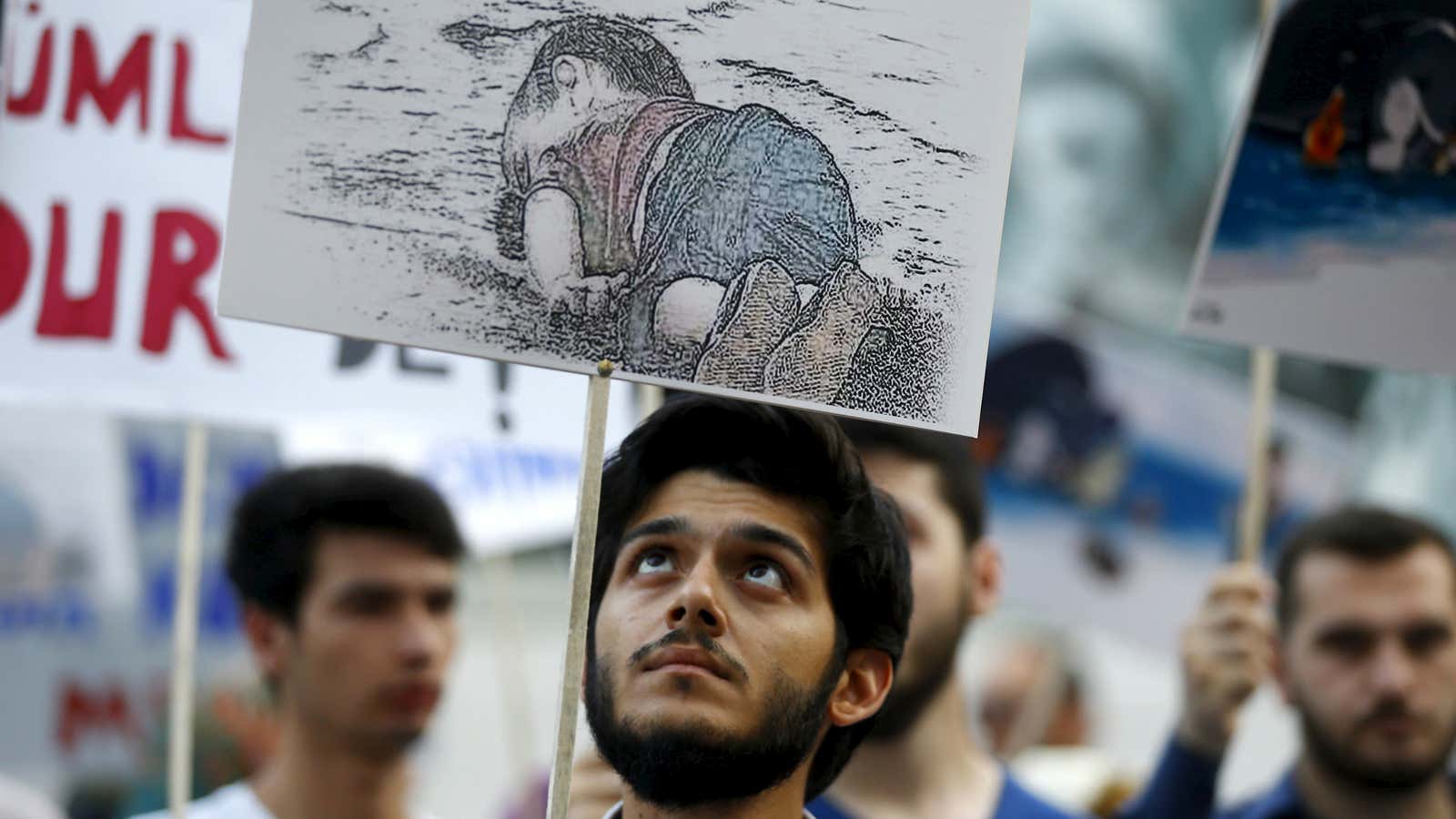The heartbreaking photo of Aylan Kurdi’s lifeless body on a Turkish beach was a tipping point in the refugee crisis. The three-year-old had drowned alongside his brother and mother, when a boat carrying the family to Greece sank. The image had a huge impact; it appeared on 20 million screens around the world in just 12 hours.
After analyzing around 3 million social media posts, researchers at the University of Sheffield concluded that the image changed the language used on social media about the refugee crisis. People first used the words “migrants” and “refugees” interchangeably, but a public debate emerged of which word to use; the BBC continues to use the “neutral” term migrant, while Al Jazeera criticized what they believed to be a word that “evolved from its dictionary definitions into a tool that dehumanizes and distances.” After the picture of Aylan Kurdi was widely shared, the number of people using the word refugee dramatically increased.
Researcher Francesco D’Orazio said in a statement:
For most of 2015, the use of the words migrants and refugees was head to head in public conversation, accounting for pretty much the same volume over nine months—5.2 million tweets versus 5.3 million tweets. From September 2 onward this radically flipped. The numbers swing dramatically towards a clear focus on refugees—2.9 million tweets and 6.5 million tweets.
The photo humanized the refugee crisis and spawned a number of hashtags—including #refugeeswelcome—which people used to put pressure on their governments to respond. A number of countries and newspapers ended up softening their attitudes towards taking in refugees in response to the public outcry.
The image was also used by ISIL to discourage Muslims from fleeing to Europe. The terrorist group warned parents against the dangers of fleeing the so-called Islamic State, exposing their children to “fornication, sodomy, drugs, and alcohol.”
